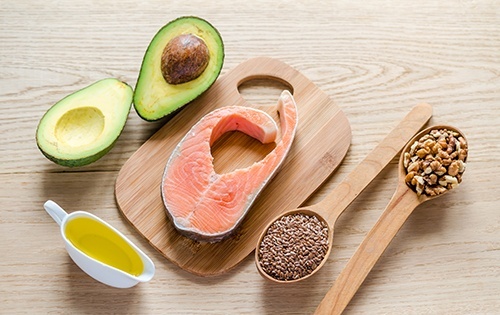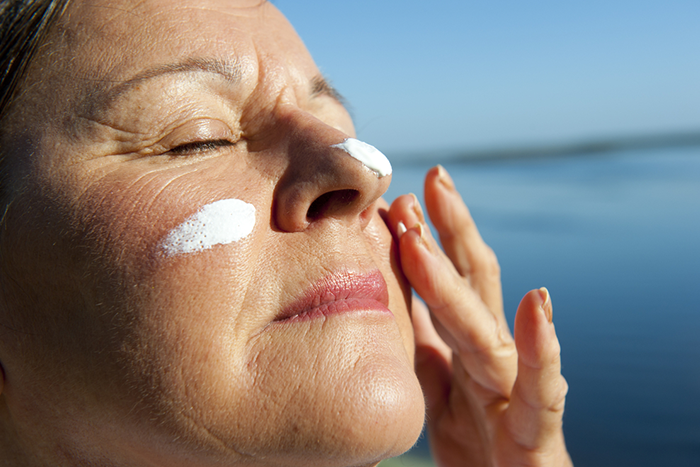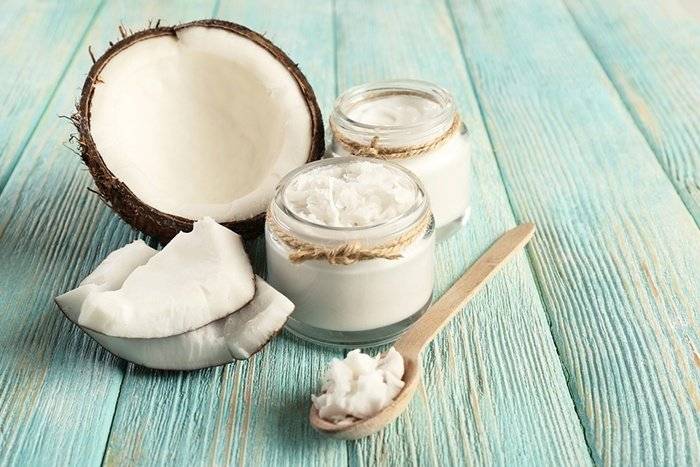Healthy Oils: Let’s chew the fat on fats

For so long, it seemed that we were getting the message that oils were bad for our diet – high in cholesterol, clogging our arteries – until the message, like so many oils, became refined: oils are a necessary part of a healthy diet. As we teach at Mountain Trek, our omega 3, 6 and 9s are an important part of every meal. These fatty acids help with brain function, stabilizing blood sugar levels, nervous system, immune system, and so many other aspects of health; not to mention glossy hair and glowing complexion! What really matters when considering oil is the kind and amount of healthy oils you’re consuming.
In understanding that the oils are an essential part of a nutritious diet and healthy self, we can attempt to integrate this into our meals in innovative and delicious ways. But the information and choices can sometimes be overwhelming; mono-saturated, extra virgin, nut oils, vegetable oils, high smoke point, refined, trans-fat-free… and many, many shelves lined with the options. Let’s turn up the heat and get cooking with the facts on fats!
The Facts on Fats
As the first point of clarification, both ‘oil’ and ‘fat’ have the same important role in the body; the difference is that oil is liquid at room temperature, while fat is solid. At a chemistry level, all fats are made up of triglycerides: a combination of saturated, monounsaturated, and polyunsaturated fatty acids, hence the triglycerides. This ratio of saturated to monounsaturated to polyunsaturated fatty acids is exactly what defines a particular fat. For example, olive oil is made up mostly of monounsaturated fatty acids, making it a monounsaturated fat. Please remember that although helpful to our health and very delicious, oils are calorie-rich so use moderation.
Monounsaturated fats
Monounsaturated fats are considered the healthiest of all oils, for example, they are good for the heart, as they lower bad cholesterol and maintain good cholesterol. This said, all three oils have their place in good health, and therefore in the kitchen. Perfect for use raw in dressings and drizzles or in light cooking, monounsaturated fats include olive, avocado, sesame, and peanut oils.
Polyunsaturated oils
Polyunsaturated oils have a less stable chemical structure than monounsaturated fats, and as such are more likely to spoil when exposed to heat or light. For this reason, these oils are best stored in the fridge and used raw. Walnut, grapeseed, corn and fish oils are all polyunsaturated.
Saturated fats
Saturated fats are the most stable and are therefore best for high cooking temperatures. This group is mostly comprised of animal fats like butter, but interestingly coconut oil from vegetable source is predominantly a saturated fat too. You’ll want to limit, but not avoid saturated fats.
Related Article: Fiesta Salad With Chicken Recipe
You’ll notice that ‘Trans’ fats fall nowhere into the makeup of the fat molecule triglyceride. And this is true because trans fats are not at all-natural, but human-made. Originally created to extend the shelf life of certain vegetable oils, trans fat is what occurs when an unsaturated oil is injected with hydrogen, thereby making it ‘partially hydrogenated’. The trans-fatty acids that result are exceptionally harmful to health, especially in large doses over time; thus resulting in increasingly bad cholesterol, and negatively impacting heart health.
In fact, trans fats were declared so harmful that a law was passed in 2006, forcing food products to indicate the ‘trans fats’ per serving on their nutritional panel. This is why so many consumer goods are now labeled ‘trans-fat-free’, to indicate they’re using no hydrogenated oils. Products that can still have trans fats include margarine, crackers, chips, and even certain breakfast cereals, so be consumer aware and read those labels!
Oh, Omega 3, 6, 9
What does it mean when we refer to getting our Omega 3s, 6, 9s? Omega 3 and omega 6 fatty acids are two types of essential polyunsaturated fats. These essential fatty acids (EFAs) are fats that your body can’t manufacture on its own and, therefore, have to be provided through your diet, and this is why they’re referred to as “essential.”
Omega 9 fatty acids come from the family of monounsaturated fats. Unlike omega 3 and 6, omega 9 fatty acids are not classed as essential. This is because they can be created by the human body from unsaturated fat, and are therefore not essential in the diet. All omegas are important to body function and health!
So Many Oils, Which to Choose?
There are literally dozens, if not hundreds of options out there, and not all oils are ideal for every purpose.
For raw use, like vinaigrettes and marinades, you’re looking for oils that have a delicious, full flavor. Try olive, walnut, flax, or hemp for your next salad.
For sautéing, you’ll want an oil that can stand up to the heat. Try heart-healthy monounsaturated peanut oil for an Asian dish, or for an all-around good choice, try avocado, canola, or coconut oil.
And beyond oils, there are many other sources of fatty acids, including nuts and fish. The trick is to enjoy the unsaturated fats in moderation, limit saturated fats, and avoid trans fats altogether. Have fun getting creative in the kitchen with your so very important omega 3, 6, 9s!
What is Mountain Trek?
Mountain Trek is the health reset you’ve been looking for. Our award-winning health retreat, immersed in the lush nature of British Columbia, will help you detox, unplug, recharge, and roll back years of stress and unhealthy habits. To learn more about the retreat, and how we can help you reset your health, please email us at info@mountaintrek.com or reach out below:









